Student parents provide advice
September 4, 2019
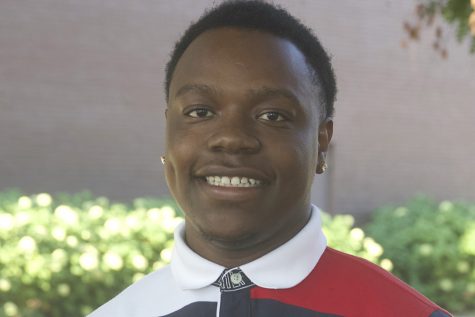
Michael Miller, a college student affairs graduate student and single father of two, poses for a picture Wednesday afternoon in front of the Doudna Fine Arts Center. Learning how to be a good student, which many find a difficult challenge itself, in addition to being a good parent is something that eventually just happens with practice, Miller said.
For Jordyn Hayes, the feeling of being a parent is simply indescribable.
The senior human services and community leadership major said being a college student with children certainly does come with its obstacles, but she would not change a thing.
About 22 percent of undergraduates are parents; that is 3.8 million college student parents, according to 2015 to 2016 data from the U.S. Department of Education.
Even though student parents make up almost a quarter of campus populations, Michael Miller, a college student affairs graduate student and single father of two, said they do not know about the resources available for them. One resource is the Eastern Student Parent Association.
Hayes said she joined E-SPA in 2017, when her oldest son Noah was six months old and has made great friends there.
E-SPA, above all, gives student parents support—something Hayes said is absolutely necessary for success.
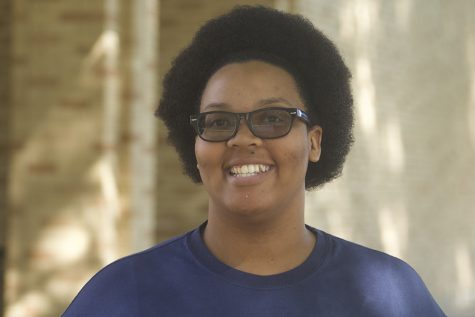
Jordyn Hayes, a senior human services and community leadership major, poses for a picture Wednesday afternoon in front of the Martin Luther King Jr. University Union. Hayes said the feeling of being a parent is undescribable.
“I felt very alone on campus. Of my peers, a majority of them don’t have children,” she said. “E-SPA is just a group of people who get you’re trying to be your age, but at the same time, you have priorities that have been rearranged in a major way.”
At the meetings, babysitters watch and play with the children while the student parents get time to socialize with each other.
Hayes said in addition to the many food pantries, there are “a ton” of other resources, ranging from affordable childcare services to financial aid, in Charleston for student parents to take advantage of.
Miller said a list of 25 of these resources can be found on Eastern’s website.
Learning how to be a good student, which many find a difficult challenge itself, in addition to being a good parent is something that eventually just happens with practice, Miller said.
Student parents learn a lot from being in an environment where childcare and student responsibilities must maintain some balance, he said. Juggling more than one task at a time becomes a skill quickly.
“I know there where nights where (my baby) was lying in my lap and I was typing papers all summer,” he said.
Hayes said learning to budget is imperative.
“The envelope method,” a budgeting technigque she learned from TRiO director Maggie Burkhead, has changed the way she will budget forever.
Hayes said the key is to dedicate one envelope to each cost. One envelope will be for groceries, another for clothes, for example. Student parents should figure how much money needs to go into these envelopes to cover costs each month.
Once the figures are complete and bills are ready to be paid, any extra money should go straight into a savings account.
A savings account is important for any last-minute emergencies that require money, and to everyone’s dismay, emergencies do happen, Hayes said.
Time management is another skill that comes with being a student parent, she said.
She recommended student parents plan for babysitters to watch the children in advance and prepare for any sudden changes to schedule.
And speaking of schedules, keeping schedules at home can take a heavy burden off a student parent’s shoulders.
Plans change, however, so student parents need to be prepared for that, too.
“I had no schedule when (Noah) was a baby, and (eventually having one) made my life so much easier because I knew when he had to eat, when it was time for him to nap, everything,” she said. “You have to have a schedule, but it cannot be firm.”
Miller said beyond the challenge of balancing student life with parent life, another obstacle is present for many student parents: prejudice and stigmatization.
He said a common stereotype that haunts him is the assumption that African-American fathers are either absent or mediocre parents.
“I’ve had people tell me, ‘It’s nice to see a man taking care of his kids,’ like, what is that supposed to mean? Like, that’s offensive to me because obviously I’m going to take care of my children,” he said. “That’s probably the most common thing. A lot of people would be shocked to see I was providing the way I was.”
Hayes said people often incorrectly assume that she is a single mother when she talks to them about her children and childcare.
Additionally, people have been judgmental—implying that she was making a mistake by having children while attending college instead of being encouraging and supportive.
These unfair assumptions and intolerant remarks can have an emotional effect on student parents, which is why the parent needs to zone those voices out, Hayes said.
“You have to really filter whose opinion and whose voice matters,” she said.
Perhaps the most challenging aspect of being a student parent is patience, Hayes said.
Student parents’ reason for attending college is to eventually provide their families with better lives after graduating, she said. Waiting to get to that end goal is a constant struggle.
Parents have to keep moving forward, however. The end goal is always in sight, she said.
Miller said his advice to other student parents is never give up.
“Never give up on today because you never know what might happen tomorrow,” he said.
Hayes said just talking to someone who will listen is important.
“I say that there’s a reason everything is happening,” she said. “My kids are the reason I changed my major … I found (human services) now and said, ‘This is it.’ I would’ve never figured that out if I weren’t a mom. So there is a reason why everything is happening. You just have to wait.”
Logan Raschke can be reached at 581-2812 or at lrraschke@eiu.edu





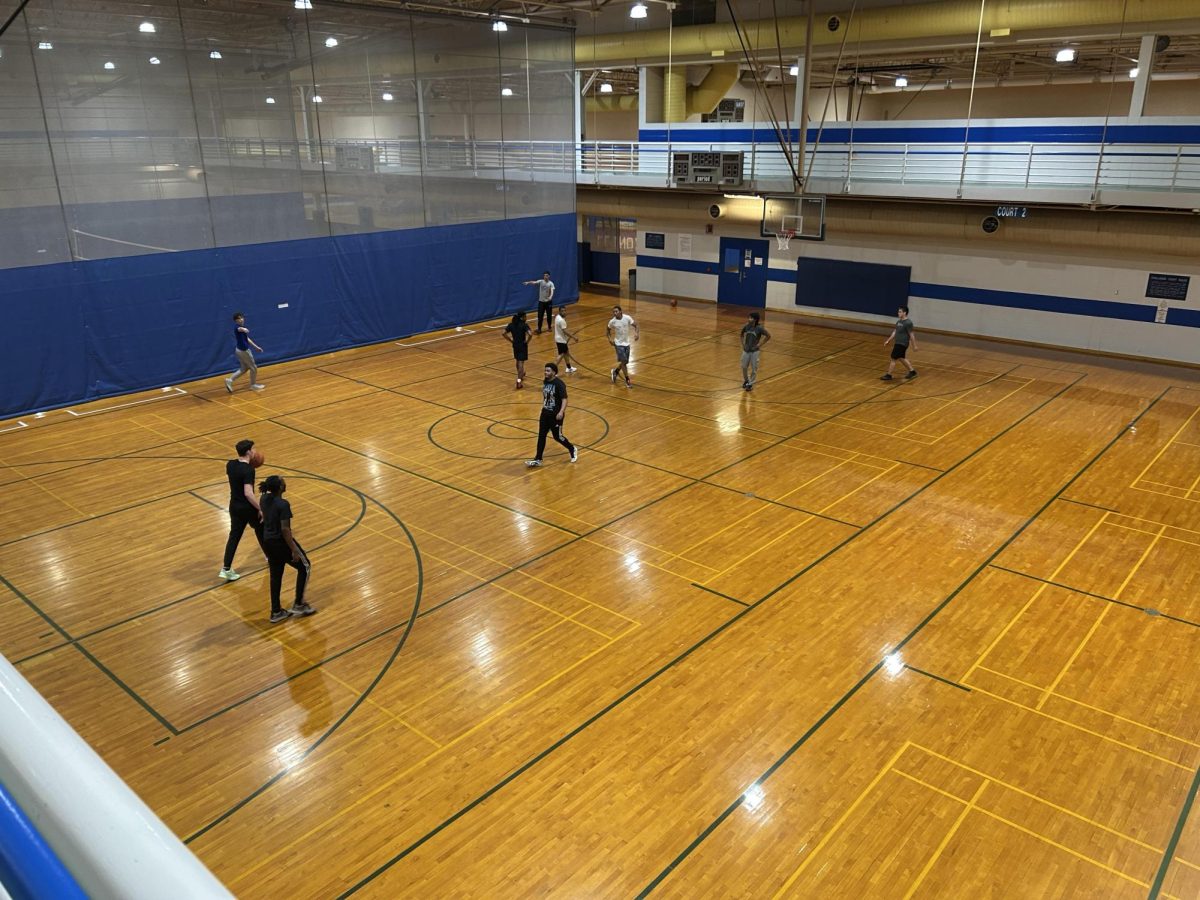
![[Thumbnail Edition] Senior tennis player Luisa Renovales Salazar hits the tennis ball with her racket at the Darling Courts at the Eastern Illinois University campus in Charleston, ILL.](https://www.dailyeasternnews.com/wp-content/uploads/2025/03/Tennis_01_O-1-e1741807434552-1200x670.jpg)


![[Thumbnail Edition] Senior right-handed pitcher Tyler Conklin pitching in the Eastern Illinois University baseball team's intrasquad scrimmage at O'Brien Field in Charleston, Illinois on Jan. 31.](https://www.dailyeasternnews.com/wp-content/uploads/2025/03/TC_01_O-e1741567955534-1200x669.jpg)






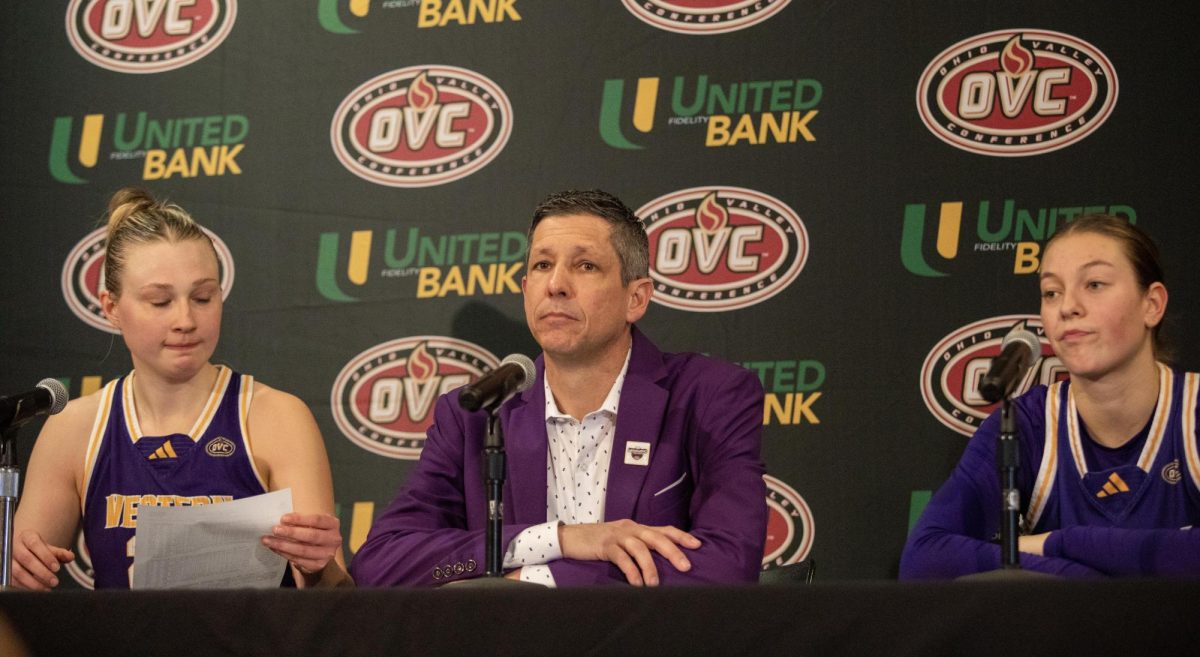
![[Thumbnail Edition] Senior, forward Macy McGlone finds an open teammate to pass the ball too during the game against the Tennessee State Tigers 69-49, in Groniger Arena on the Eastern Illinois University campus, Charleston Ill.](https://www.dailyeasternnews.com/wp-content/uploads/2025/03/WBB_02_O-1-e1741228987440-1200x692.jpg)


















![E[Thumbnail Edition] Eastern Illinois softball freshman utility player Abbi Hatton deciding to throw the softball to home plate in a fielding drill during softball practice at the field house in Groniger arena on Tuesday Feb. 11.](https://www.dailyeasternnews.com/wp-content/uploads/2025/03/SB_03_O-e1741208880750-1-e1741209739187-1200x815.jpg)
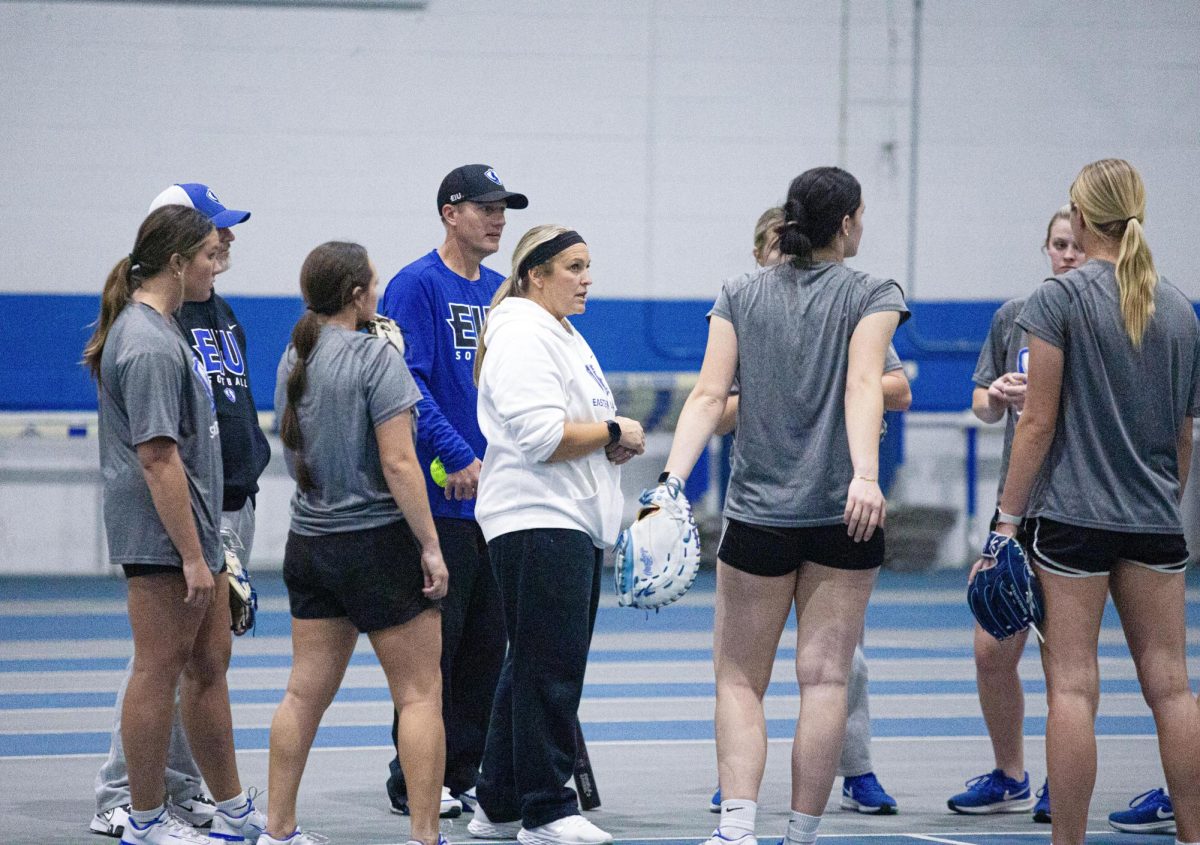
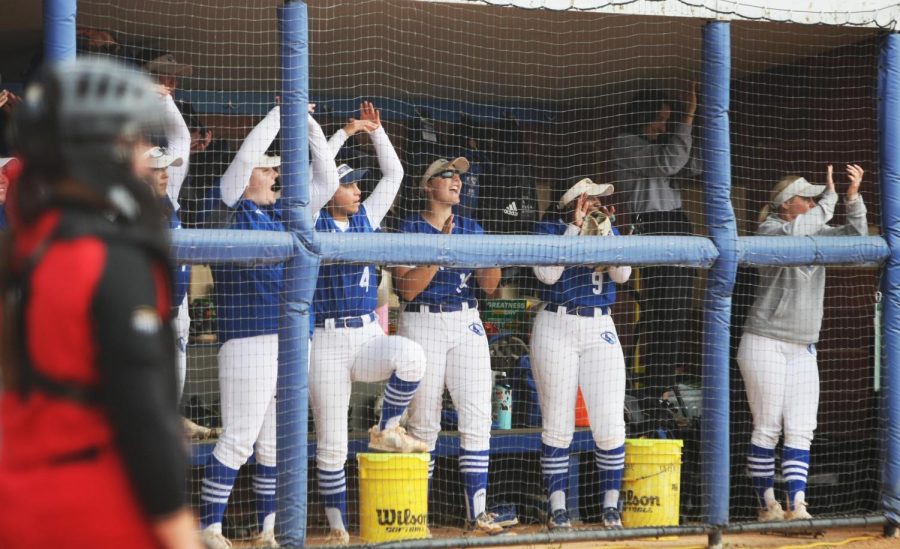













![The Weeklings lead guitarist John Merjave [Left] and guitarist Bob Burger [Right] perform "I Am the Walrus" at The Weeklings Beatles Bash concert in the Dvorak Concert Hall on Saturday.](https://www.dailyeasternnews.com/wp-content/uploads/2025/03/WL_01_O-1200x900.jpg)
![The team listens as its captain Patience Cox [Number 25] lectures to them about what's appropriate to talk about through practice during "The Wolves" on Thursday, March 6, in the Black Box Theatre in the Doudna Fine Arts Center in Charleston, Ill.](https://www.dailyeasternnews.com/wp-content/uploads/2025/03/WolvesPre-12-1200x800.jpg)
















